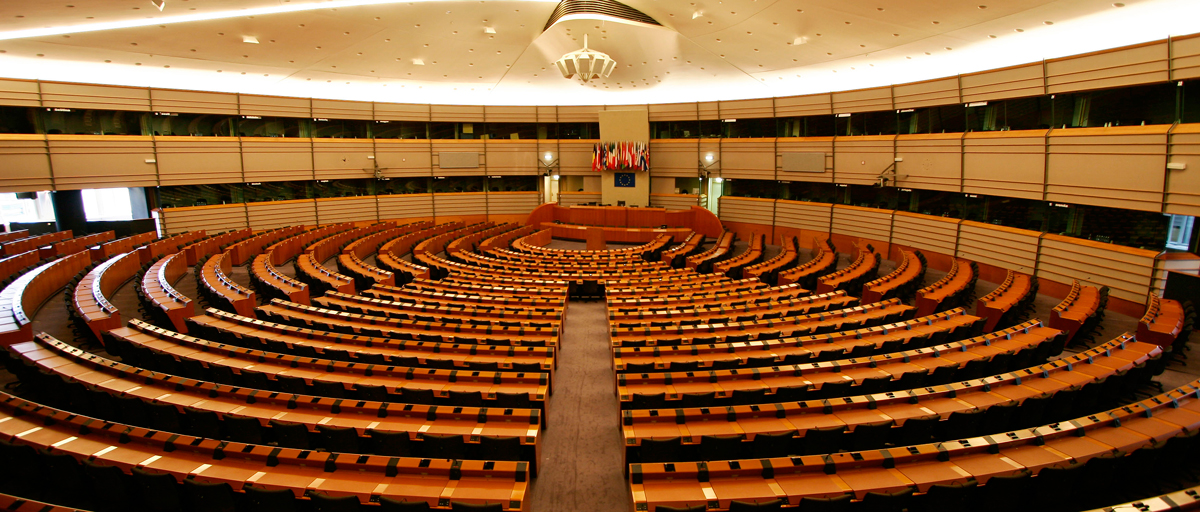
A new report prepared for the European Union argues that a circular economy based on resilience thinking would have a positive impact on social, cultural, economic and environmental sustainability. Photo: A. Maslennikov/Azote
Bildtext får vara max två rader text. Hela texten ska högerjusteras om den bara ska innehålla fotobyline! Photo: B. Christensen/Azote
the european union
A way forward through circular economy
New model of economic development is needed and Europe should take the lead, new report states
- Report argues Europe should lead transition to a more equitable and sustainable economy based on resilience thinking and circular economy
- Report provides recommendations for policy makers in the EU
- Centre researchers part of an expert group advising EU institutions on innovation and sustainability
Europe should become a global reference point for a more equitable and sustainable economy based on the principles of resilience thinking and circular economy. That is the key message from a report recently presented to policy makers in the European Union.
The report, entitled Through resilience thinking towards sustainability and innovation was produced by an expert group on resilience management and circular economy. Stockholm Resilience Centre is the academic partner of the working group. It works under the aegis of the High Level Group (HLG), an independent group of innovation experts from the European Council, the European Commission, EU Member State governments, leading international business and academia.
The report argues that applying resilience thinking in the transition towards an economy built on circularity would have a positive and overarching impact on social, cultural, economic and environmental sustainability.
"Resilience thinking acknowledges that human activities now shape the biosphere from local to global scales. At the same time, human societies are fundamentally depending on the life-supporting biosphere for survival and well-being"
Executive summary, Through resilience thinking towards sustainability and innovation
Resilience to be an overarching EU principle
Concrete recommendations for further action in this direction are presented to the EU institutions and Member States, notably on the notion of making sustainability through resilience thinking an overarching EU policy principle; on applying the principles of resilience thinking to boost social innovation and increase citizen’s well-being; and by simultaneously stimulating competitiveness by means of an equally overarching innovation policy.
A shift to circular economy is also important, the report argues. This requires a transition from a linear economic model to a circularity based model where resources are kept in use for as long of possible, reducing the generation of waste, improving resource efficiency and developing a sustainable economy through innovation. The European Commission adopted in 2015 a new Circular Economy (CE) package aimed to support a smart, sustainable and inclusive growth. One focus area has been waste recycling recommending new EU-wide targets for waste recycling, a binding landfill target, the promotion of economic tools to discourage land filling, and harmonized calculation methods for recycling rates in the EU.
"Circular Economy remains the most encompassing initiative and most far-reaching project to date where resilience thinking is being used as a catalyst for economic sustainability," the report states.
The European Commission’s action plan seeks to support the circular economy in each step of the value chain-from production to consumption, repair and remanufacturing, waste management, and secondary raw material.
Recommendations to promote systems change
The report acknowledges that prosperity and sustainability cannot be achieved without building “resilient systems that promote radical innovation in economic policy, corporate strategy, and in social systems and public governance.”
A series of recommendations have therefore been developed to show how resilience thinking can guide this new policy development:
- Sustainability through resilience thinking must become an overarching EU policy driver
- Apply the principles of resilience thinking to boost social innovation
- Innovate the governance of sustainability through resilience thinking
- Create semi-protected niches for frontrunners to experiment
- Transition funding and public procurement for innovation
- Avoid lock-ins & provide dynamic standards and targets
- Develop sector-specific, resilience-thinking based policies
For more information about the report and Stockholm Resilience Centre's contribution to the High Level Group, please contact our Managing director Olof Olsson






